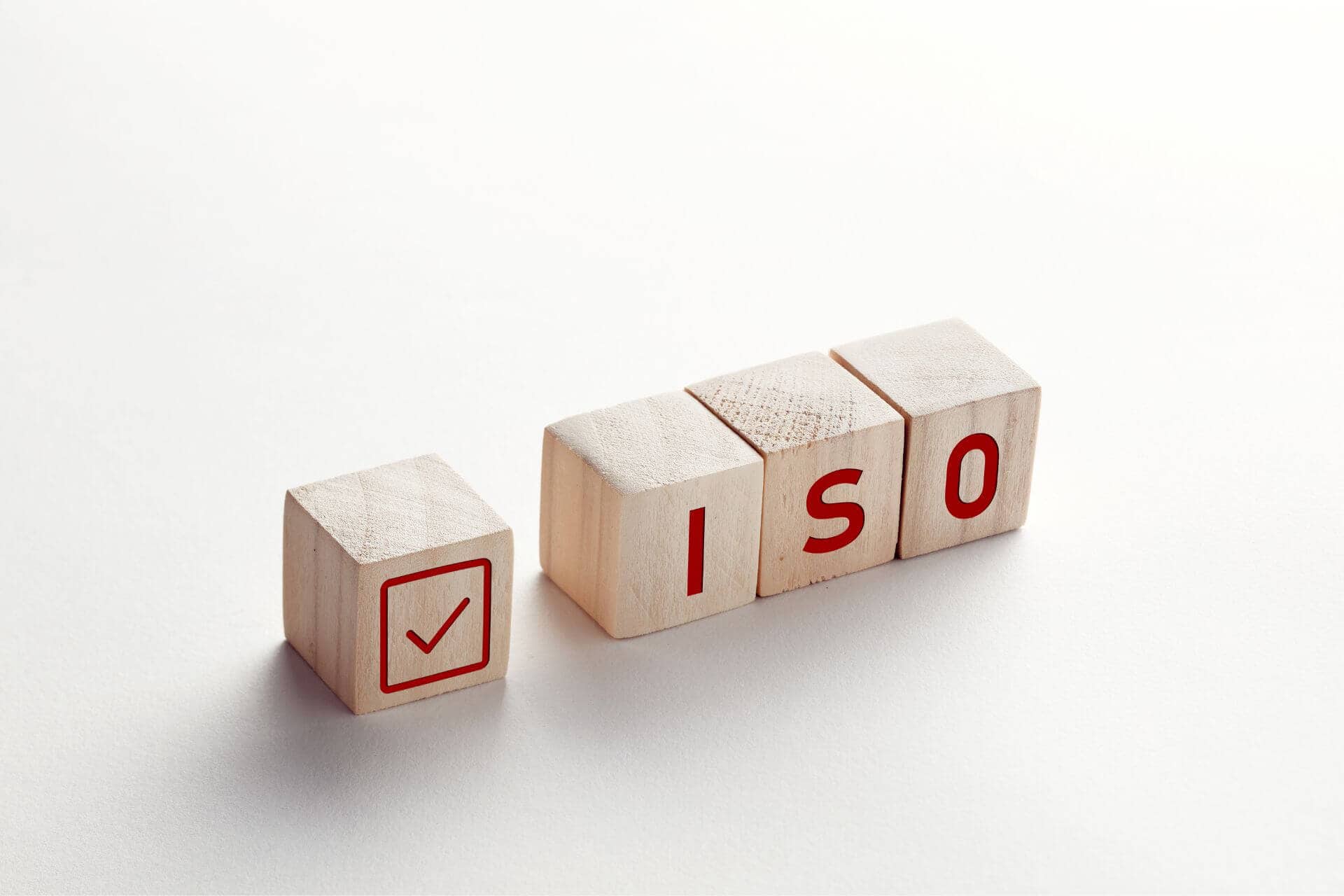In the world of business, ISO certifications are what companies strive to achieve to ensure the quality, safety, efficiency, and consistency of their products, services, and systems. Since 1946, ISO has published 25407 international Standards, covering a wide range of sectors, including technology, manufacturing, healthcare, and agriculture.
Most Common ISO Certifications
Among these, ISO 9001, ISO 14001, and ISO 45001 are the most widely used, setting the Standards for quality, environmental responsibility, and occupational Health & Safety. In this blog, we’ll provide a detailed comparison between ISO 9001, ISO 14001, and ISO 45001, highlighting their similarities and differences to help you determine which certification best suits your business needs.
What is ISO 9001 certification?
ISO 9001 is a globally recognised Standard for quality management systems (QMS). It’s designed to help organisations make sure they meet the needs of customers and other stakeholders while complying with statutory and regulatory requirements related to a product or service. The Standard is based on several quality management principles, including a strong customer focus, the involvement of top management, a process approach, and continuous improvement.
Who needs ISO 9001?
Any company, regardless of size or industry, can benefit from ISO 9001 certification. It’s particularly advantageous for businesses that aim to enhance customer satisfaction, streamline operations, and improve their overall efficiency. In particular, manufacturing companies, service providers, educational institutions, and even government agencies can implement ISO 9001 to demonstrate their commitment to quality.
What is ISO 14001 certification?
ISO 14001 is centred around environmental management systems (EMS), aiming to help organisations establish and implement best practices to manage and minimise their environmental impact. Based on the Plan-Do-Check-Act (PDCA) cycle, it works to improve resource efficiency and corporate credibility, cut waste management costs, and help compliance with environmental legislation.
Who needs ISO 14001?
Businesses that are serious about improving their environmental performance and complying with increasingly stringent regulations should consider ISO 14001 certification. This includes companies in industries such as manufacturing, construction, and logistics, as well as service-oriented businesses that want to demonstrate their commitment to sustainability.
What is ISO 45001 certification?
ISO 45001 is the international Standard for occupational Health & Safety (OH&S) management systems. Statistics from the HSE reveal that in 2022 and 2023, 60,645 non-fatal injuries were reported by employers (RIDDOR) and 1.8 million employees suffered from work-related ill-health. This Standard aims to prevent such incidents by providing a robust framework for managing OHS risks and ensuring safer, healthier workplaces.
Who needs ISO 45001?
If you’re looking to better manage occupational Health & Safety risks while reducing associated costs, a certified ISO 45001 management system is the solution you need. It’s especially relevant for industries with higher risks of workplace accidents and illnesses, such as construction. However, any organisation looking to demonstrate its commitment to the wellbeing of its employees can benefit from this certification.
Similarities between ISO 9001, ISO 14001, and ISO 45001
While ISO 9001, ISO 14001, and ISO 45001 each focus on different aspects of organisational management, they share several common elements:
- High-Level Structure (HLS): All three standards follow the Annex SL high-level structure, which provides a common framework and makes it easier to implement multiple standards in an integrated system.
- Risk-Based thinking: Each Standard emphasises the importance of identifying and addressing risks and opportunities within the respective management systems.
- Continual improvement: A core principle across all three Standards is the commitment to continuous improvement, ensuring that businesses consistently strive to enhance their systems and performance.
- Leadership: Top management’s involvement and leadership are crucial for the successful implementation of ISO 9001, ISO 14001, and ISO 45001.
- Stakeholder focus: All three Standards require organisations to consider the needs and expectations of relevant stakeholders, whether they are customers, employees, or regulatory bodies.
Differences between ISO 9001, ISO 14001, and ISO 45001
Despite their similarities, ISO 9001, ISO 14001, and ISO 45001 each have distinct focuses and requirements:
-
Core Focus:
- ISO 9001: Focuses on quality management and customer satisfaction.
- ISO 14001: Concentrates on environmental sustainability and waste reduction.
- ISO 45001: Targets occupational Health & Safety, aiming to prevent workplace injuries and illnesses.
-
Key Requirements:
- ISO 9001: Emphasises process control, quality objectives, and customer satisfaction.
- ISO 14001: Requires organisations to identify environmental aspects and impacts, set environmental objectives, and ensure compliance with relevant legislation.
- ISO 45001: Focuses on hazard identification, risk assessment, and the implementation of control measures to guarantee worker safety.
-
Stakeholders:
- ISO 9001: Primarily concerned with customers and the quality of products or services delivered.
- ISO 14001: Involves a broader range of stakeholders, including regulatory bodies, the community, and environmental groups.
- ISO 45001: Focuses on employees and other workers, ensuring their Health & Safety in the workplace.
Finding the right ISO certification for your business
When it comes to choosing the right ISO certification, this all depends on your business’ specific needs and objectives. Here are some considerations to help you decide:
- Customer expectations: If your customers demand high-quality products or services, ISO 9001 is essential.
- Environmental impact: If your operations significantly impact the environment, ISO 14001 can help you manage and reduce those impacts.
- Workplace safety: If your industry involves high risks to worker Health & Safety, ISO 45001 will be crucial for your organisation.
Many businesses find that they can leverage more than one ISO Standard, particularly when integrating their management systems. But once you grasp the similarities and differences between ISO 9001, 14001, and 45001, you’ll be better equipped to choose the one that best suits your business goals.
Combine your ISO 9001, ISO 45001, and ISO 14001 management systems in one integrated solution!
Implementing multiple ISO Standards can be a complex task, but it doesn’t have to be. As one of the UK’s leading ISO certification bodies, we take the hassle out of compliance with a range of ISO services including our supercharged ISO 9001, ISO 14001, and ISO 45001 integrated management system.
With our all-in-one solution, you can achieve continuous improvement across quality, environmental, and occupational Health & Safety management, positioning your business for long-term success.
Why Choose Us?
- Expertise: Our experienced consultants and auditors have a deep understanding of all three Standards and their integration.
- Tailored solutions: We develop customised management systems that align with your specific business objectives.
- Comprehensive support: From e-learning to implementation and certification, we provide end-to-end support.
- Sustainability: Our integrated approach helps you achieve sustainability goals while improving quality and safety.
Request a quote today, or call our team on 0333 242 8316 to learn how we can help you integrate ISO 9001, ISO 14001, and ISO 45001 into a unified management system that drives excellence.
While you’re here, take control of your compliance 24/7 through our online management system platform, Atlas ISO. This comes with the additional benefits of built-in document controls, digital templates and more!

